By Mary Sinanidis
Greek language students returned to classrooms last week, days before International Greek Language Day on February 9.
Zoyee Kartalis enrolled her daughters, Aliki and Sophia, for another year. Despite their resistance, she does all she can to instil a love of Greece and rudimentary knowledge of the language. She remembers her own experiences as a young girl, when she spent Saturday mornings learning the Greek language while her friends played netball and socialised.
“Growing up, there were times I absolutely hated going to Greek school, but it wasn’t until I turned 20 and went to Greece myself that the penny dropped,” she said.
“I could navigate my way around Greece with ease and was grateful for learning the language. I want our girls to be aware of the language, rich culture and history associated with all things Greek.”
Unlike Zoyee, Aliki and Sophia, have less opportunity to hear and practice Greek, but with “perseverance and patience” the family celebrate each small victory in their language acquisition.
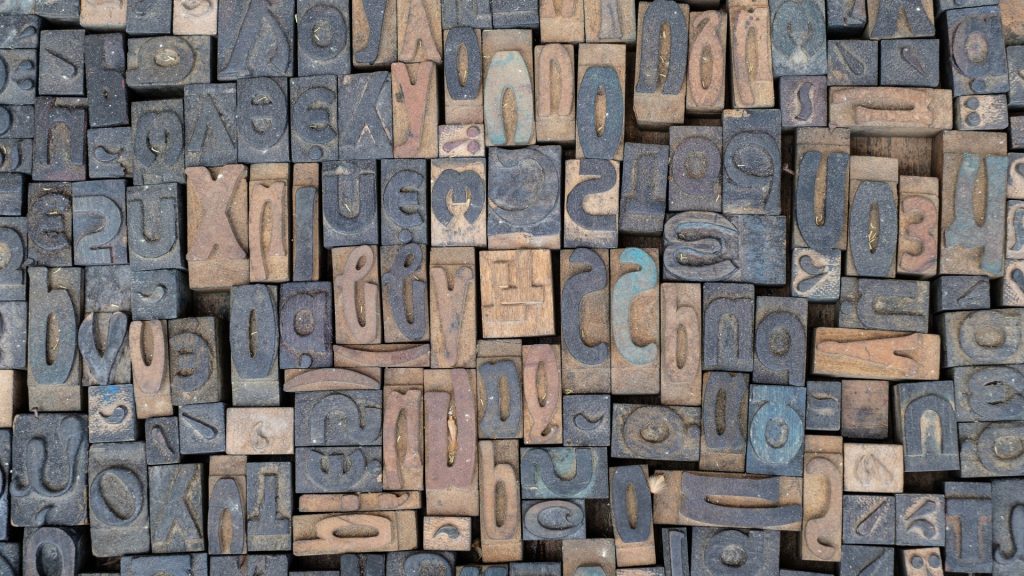
“Maintaining the Greek language in our household is a challenge as both my husband and I grew up in Australia and English is our first language,” Zoyee said. “We spoke to our parents in Greek, but as the older generation is dying out, it is being used less.”
The Kartalis family continue to persist however many others have given up altogether, finding the struggle too much to bear in the downward trajectory of languages spoken by established migrant groups, such as Greek and Italian.
Fight to save the Greek language
American linguist Joshua Fishman said the US was the “graveyard of languages,” but it’s a phrase that could easily apply to Australia as well. Though 425,000 people declared they were of Greek ancestry and 41,000 claimed to be Cypriots in 2022, only 229,643 of those could speak Greek. This marked a 3.4 per cent drop from 237,583 Greek language speakers in 2016 and 263,487 in 2001.
University of Melbourne Language and Literacy Education Professor Joseph Le Bianco told The Greek Herald, regardless of heritage, it takes three generations for many migrant families to lose the languages they come with. He said the decline of Modern Greek is currently at “emergency levels.”
Much has changed since 1987 when Professor Lo Bianco wrote the first Multilingual National Language Policy in an English-speaking country. There’s not been a policy since then.
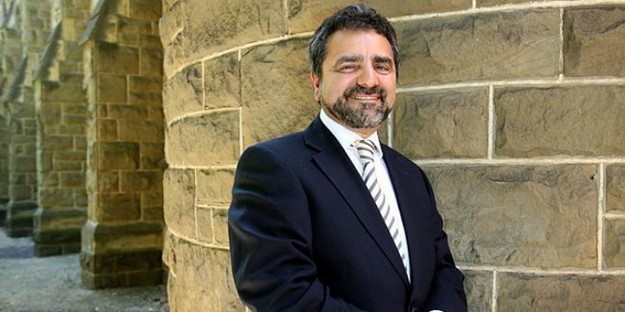
Key Greek language stakeholders in Victoria stepped in where government has failed and created the Pharos Working Party in April 2021, a beacon of hope (pharos means lighthouse in Greek).
The Modern Greek Strategic Plan discussion paper, commissioned by the Modern Greek Teachers’ Association of Victoria (MGTAV) with the collaboration of Professor Lo Bianco, aims to turn around the situation with various initiatives to address current needs.
MGTAV Vice-President, Anita Kolaitis, told The Greek Herald that “the first thing everybody can do, is to familiarise themselves with this Plan, and work out how they, as individuals, families, workplaces, schools, organisations, etc, can support our efforts.”
The three overarching ideas of the Strategic Plan are: (1) build capacity (the current focus); (2) create opportunities; and (3) foster desire.
Professor Lo Bianco points to several positive outcomes of the Pharos Process and as an example of the power of coordination, he points to the Greek community’s collective efforts to keep alive the Modern Greek program at La Trobe University – a huge win.
There’s more to come and the Pharos group is “waiting on a date to meet with the government.”
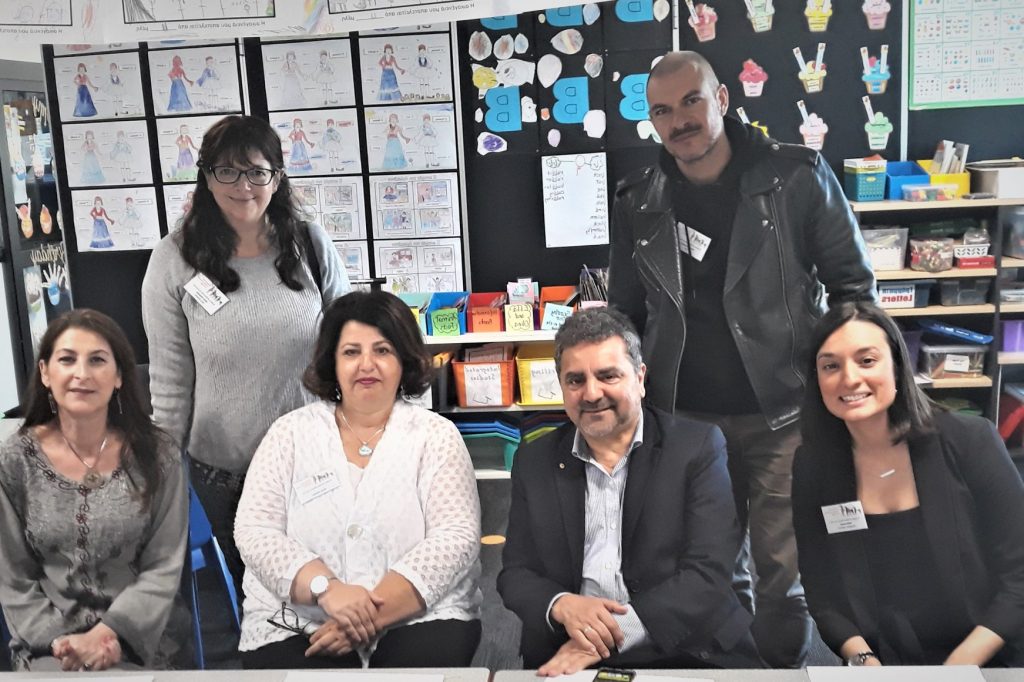
“We have a program of activities for this year, including promotion, publicity, fundraising, teacher education, professional development, but we need more funds. So far, it’s a voluntary effort,” Professor Bianco said.
But is it too late? To be able to implement the Plan, we need students and teachers.
Dwindling teacher numbers
Dr Maria Gindidis, Senior Lecturer of the School of Education Culture and Society at Monash University, points to a teacher shortage across the board in Victorian schools, including for mainstream subjects.
Dr Gindidis told The Greek Herald that “actual teaching has been lost with all the other requirements” such as administration, evaluation, additional testing. For Greek language teachers it is even worse, with many being asked to take composite classes teaching two or sometimes three books per year. Oftentimes, they may have students for more than two years, meaning they can’t reuse the lesson plans from the year before.
“There’s a high burnout,” she said.
The shortage has caused some providers to seek solutions, such as paying teachers for time spent writing and sending out reports or creating their lesson plans.
Dr Nick Dallas, the convenor of the Greek Community of Melbourne’s Education Committee, said: “We’ve started a teacher mentor program and have taken previous high-performing Greek school graduates to train as teachers,” he said, adding that there is no “silver bullet solution.”
“We’ve also offered full time positions to many teachers so that they are more committed to the program.”
Georgia Nikolaidou, Executive Educational Consultant for the Greek Ministry of Education, is responsible for teachers on secondment from Greece to Melbourne. In its heyday, the program saw dozens of teachers come from Greece to assist in the preservation of the language in Australia and New Zealand, however these days there are nine in Oceania, and just two in Melbourne.
“We try and prepare them as much as we can before their arrival. We tell them what they’ll encounter at schools, where despite being fully trained and experienced as teachers, they can – by law – only work as assistant teachers at state schools. This means that their success depends a great deal on how they gel with the classroom teacher,” Ms Nikolaidou said.
Dr Gindidis also points to problematic textbooks offered by the Greek government for students abroad. She said they exceed the students’ current learning levels following generational language loss.
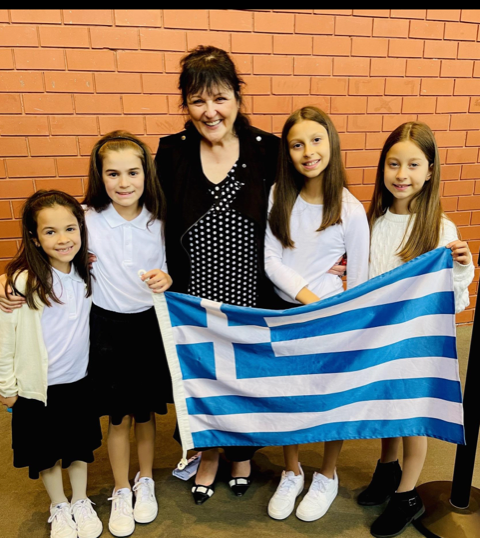
As head of Protypo language school, Dr Gindidis has taken the route of many other language schools and has created her own resources.
She has also campaigned to change what she believes to be “flawed” VCE exams for non-native Greek speakers in Year 12.
“If a child wanted to do French and picked it up in Year 7, they could finish in Year 12, and the Chinese have four VCE levels whereas all Modern Greek students sit for the same exam and it was until recently that they were marked in the same way regardless of their levels,” Dr Gindidis said.
“I created a change.org petition to improve the Modern Greek VCE which is not transparent, caters to high levels, and is in favour of recent arrivals from Greece rather than students who don’t have as much exposure to the language and rely on all they learn at school.”
Due to this, each year the numbers of students deciding to sit for the VCE keeps dropping, and Lo Bianco agrees with Dr Gindidis that work needs to be done to draw non-Greek VCE speakers. Last year numbers were under 200 and each year less than the one before.
Keeping children engaged
And what about Greek school? Everyone agrees that success won’t come unless children have an opportunity to practice what they learn at Greek school.
Dr Dallas said that parents are the “gatekeepers” of language. “Once we get them in then we’ve got more control and we can influence development,” he said.
Teachers can explain grammar but it falls on deaf ears without effort from parents.
“Convince the parents to speak Greek,” Dr Nikolaidou said when asked what can be done to salvage the Greek language. “It is difficult when people don’t feel secure in speaking the language. I already see this in my own daughter. She spends eight hours of her life in an English environment, but the language will be lost if I don’t practice Greek with her.”
Ms Kolaitis urges parents to create opportunities.
“Many students who decide to continue their Greek language learning journey do so because they feel the need to learn the language in order to communicate with family members, because some of their happiest memories within their families revolved around using the Greek language, because they knew it would make their families proud, or, quite simply, because they understood the value of it, having connected with the language at home,” she said.
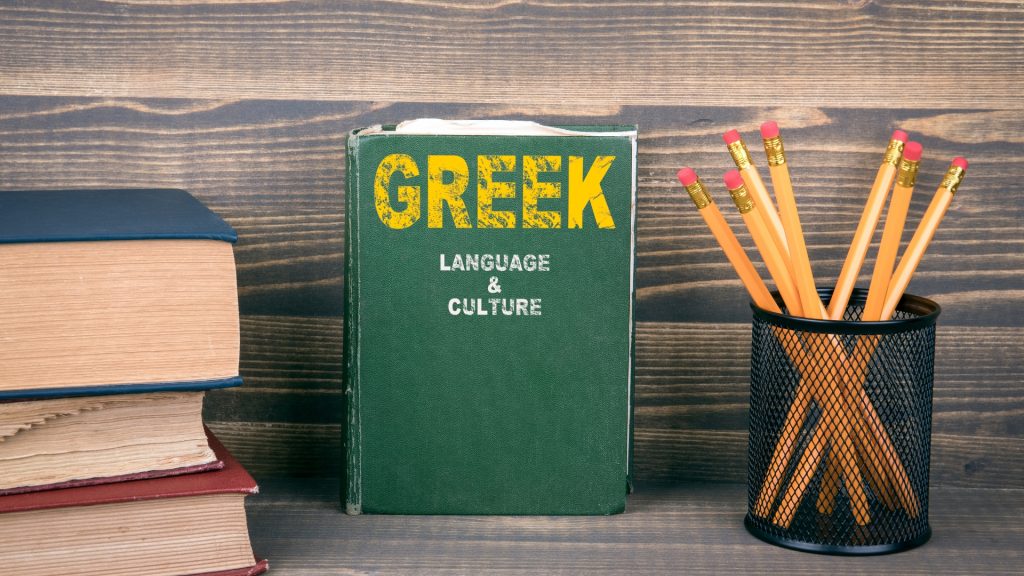
Initially, it is hard to speak Greek when English slips off the tongue, however “it’s really just a habit,” said Ms Kolaitis. One tip she gives is to use the language during play.
“Doing this means that your child won’t be thinking about using another language. They will be thinking about playing,” she added.
“For parents who may need to brush up on their Greek themselves, just remember that every effort counts, no matter how big or small.”
Why even bother?
Dr Gindidis said that during COVID-19, the student numbers at Protypo fell from 600 to 400, and that was one of the lucky schools with others counting even more losses. Unfortunately, parents felt that the pressures of online learning were too great and gave up Greek altogether.
“Linguistic aspects are just one of the reasons to go to Greek school,” Dr Gindidis said. “The feeling of identity, our hybrid identity, culture and friendship with others are important factors. Children don’t just go to Greek school because of language. There is a kaleidoscope of other needs.”
Cultural knowledge and identity are also important, and inextricably wound up in language.
UNESCO states: “Every language reflects a unique worldview with its own value systems, philosophy and particular cultural features. The extinction of a language results in the irrecoverable loss of unique cultural knowledge embodied in it for centuries, including historical, spiritual and ecological knowledge that may be essential for the survival of not only its speakers, but also countless others.”
And that’s why on February 9 we learn Greek and celebrate the Greek language. In Australia, the day is marked with a return to Greek language school. Each family fighting its own battle for the Greek identity to linger in their household.
The Pharos Group invites everyone to harness this energy. To do something where governments won’t… collectively.


